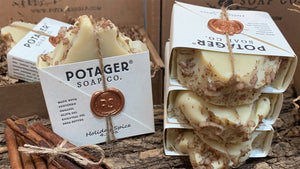Blending Herbs and Florals into Handmade Castile Soap
May 20, 2024
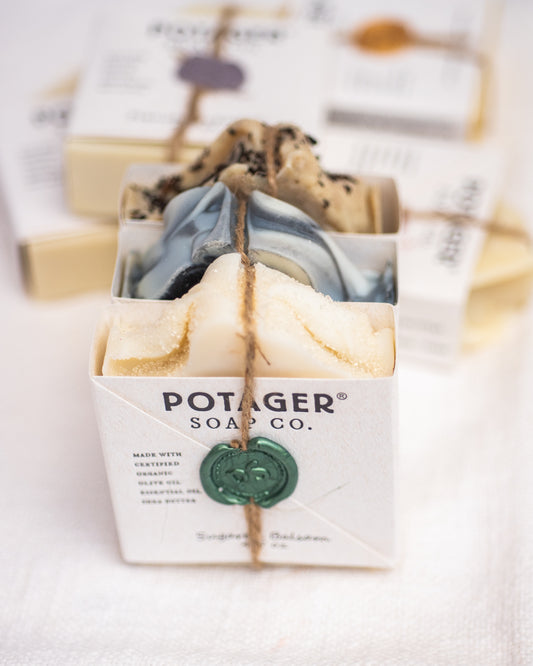
Castile soap is known for its versatility and eco-friendliness and offers a gentle cleansing experience. Originally made in the Castile region of Spain, this soap has become a staple in health-conscious households worldwide. Scenting Castile soap with natural herbs and flowers not only enhances its sensory appeal but also leverages the therapeutic properties of botanical ingredients. Today, we'll explore how various natural scents can be integrated into Castile soap, transforming simple hygiene routines into immersive aromatic experiences that soothe, refresh, and invigorate the senses.
What Are The Basics of Castile Soap
Castile soap is traditionally crafted from olive oil, a base that yields a soft, moisturizing lather ideal for sensitive skin. Unlike commercial soaps laden with synthetic detergents and harsh chemicals, Castile soap’s simplicity and natural composition make it an excellent choice for eco-friendly cleaning and personal care. Over time, variations of Castile soap have incorporated other vegetable oils such as coconut, hemp, and jojoba, enhancing its lathering and moisturizing properties.
The purity and mildness of Castile soap make it an ideal canvas for adding natural fragrances. It does not contain synthetic perfumes that can irritate the skin or overpower the delicate scents of herbs and flowers. Instead, it absorbs and subtly diffuses natural oils and essences, providing a base that complements the botanical additives without chemical interference.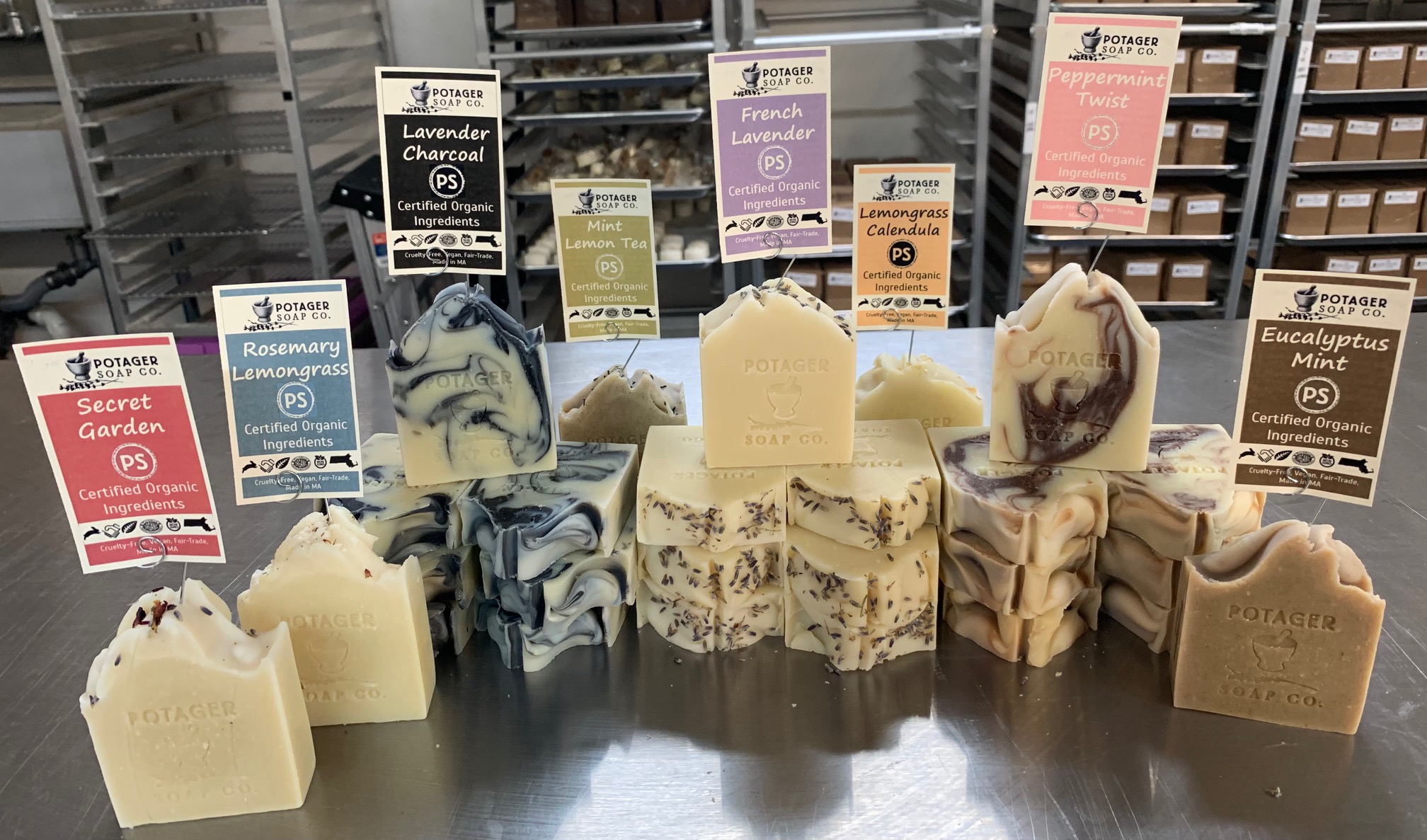
What are the Benefits of Natural Scents
Integrating natural scents through herbs and flowers in Castile soap offers several advantages beyond mere aroma. Firstly, natural scents derived from botanical sources can provide therapeutic benefits, such as relaxation, mood enhancement, and even antibacterial effects, which are not typically available with synthetic fragrances. For instance, lavender is renowned not only for its calming scent but also for its ability to soothe irritated skin and improve sleep quality. Using natural scents ensures that the products are free from potentially harmful chemicals often found in synthetic fragrances, such as phthalates and parabens, which can cause allergic reactions and other health issues. Consumers increasingly prefer products with ingredients they recognize and trust, making naturally scented Castile soaps highly appealing.
Additionally, the process of sourcing and incorporating natural scents often encourages sustainable practices. Many herb and flower growers use organic farming methods, which support biodiversity and reduce environmental impact. By choosing naturally scented soaps, consumers indirectly promote these eco-friendly practices, contributing to a healthier planet.
What are Common Herbs in Soap Making?
Herbs are a popular choice for naturally scenting Castile soap due to their robust aromas and beneficial properties. Here are some common herbs used in soap making:
- Lavender - Perhaps the most cherished herb for soap making, lavender offers a sweet, floral aroma that is soothing and calming. It is particularly beneficial for treating anxiety, insomnia, and skin irritations.
- Rosemary: With its strong, refreshing scent, rosemary is stimulating and invigorating. It is also thought to improve circulation and clarity, making it a great morning pick-me-up.
- Peppermint: Known for its cool, crisp scent, peppermint is energizing and can help to relieve muscle pain, clear the sinuses, and enhance mental focus.
- Lemongrass: Offering a light, citrusy aroma, lemongrass is uplifting and can help to tone the skin and reduce acne.
- Tea Tree: Highly antiseptic and medicinal, tea tree oil is excellent for cleansing and is often used to combat skin conditions such as acne.
- Chamomile: With its mild and sweet aroma, chamomile is gentle and soothing, perfect for reducing inflammation and promoting relaxation in nighttime soaps.
These herbs can be used in various forms, such as oils, dried leaves, or powders, each contributing uniquely to the soap's scent and therapeutic qualities.

Flowers not only add beautiful scents to Castile soap but also often impart soft colors and textures, enhancing the sensory experience. Here are some popular flowers used in soap making and the unique attributes they bring:
- Rose - The classic scent of roses is unmistakable and widely beloved. Rose petals can be infused into the soap base or added directly for their romantic and soothing fragrance. They also have astringent properties that benefit the skin by toning and tightening pores.
- Calendula - Known for its gentle, musky aroma and vibrant golden color, calendula is soothing and supports skin healing. It is often used in soaps for babies and those with sensitive skin because of its anti-inflammatory properties.
- Jasmine - Jasmine flowers provide a rich, sweet fragrance that is deeply relaxing and often used in stress-relief aromatherapy blends. The oil from jasmine is also known for its hydrating and soothing effects on the skin.
- Lavender - Although mentioned earlier as an herb, lavender's small purple flowers make it a dual-purpose botanical in soap making. It provides a visually appealing texture and a potent relaxing aroma.
- Chamomile - Similar to its herbal counterpart, chamomile flowers offer a sweet, apple-like fragrance and anti-inflammatory benefits, making them ideal for soothing irritated skin.
- Ylang-Ylang - This exotic flower produces a sweet, floral, and slightly fruity fragrance known for balancing oil production in the skin and promoting relaxation. Its strong scent makes it a favorite for luxurious evening soaps.
Incorporating flowers into soap not only improves the aesthetic and fragrance but also enhances the bathing experience with therapeutic skin benefits. The methods of adding flowers range from infusing the petals into the oil, adding ground dried flowers, or sprinkling petals on top for decoration.
How to Incorporate Herbs and Flowers into Castile Soap
Integrating natural scents from herbs and flowers into Castile soap can be done through various methods, each contributing differently to the final product:
- Infusion: The most common method is infusing oils with herbs or flower petals. This involves steeping the dry botanicals in a carrier oil (like olive or coconut oil) for several weeks, then straining out the solids. The resulting oil carries the essence and benefits of the botanicals and is used as the base for the soap.
- Direct Addition: For a more textured look and feel, finely chopped or ground herbs and petals can be added directly to the soap mix before it sets. This method is ideal for achieving visual appeal and mild exfoliation properties.
- Essential Oils: Adding essential oils extracted from herbs and flowers is a straightforward way to impart a strong scent. These oils are potent and can be used sparingly to achieve the desired fragrance strength.
- Maceration: Similar to infusion, maceration involves soaking the botanicals in warm oil for a shorter period (usually a few hours) to extract their scent and properties more quickly.
- Layering Scents: Combining different methods or botanicals can create complex scent profiles and benefits. For example, infusing the soap base with rosemary oil while adding dried lavender flowers for texture and visual appeal.
These methods allow soap makers to customize the scent, therapeutic properties, and appearance of their Castile soap, catering to a variety of preferences and uses.
Additional Considerations for Using Natural Scents in Castile Soap
When crafting naturally scented Castile soaps, several considerations must be kept in mind to ensure the final product is both pleasing and practical.
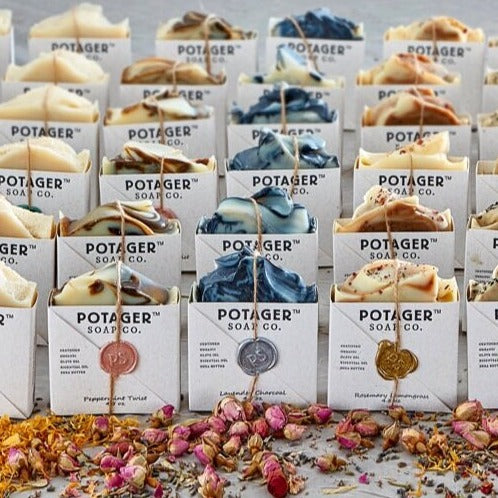
- Choosing the Right Botanicals: Not all herbs and flowers are suitable for soap making. Factors such as the oil content, potential for irritation, and how well a plant's scent survives the saponification process should be considered. For example, delicate scents like violet might not persist, whereas robust scents like peppermint might dominate.
- Managing Scent Intensity: The potency of natural scents can vary significantly. Essential oils are concentrated and only a few drops might be needed, whereas dried herbs might require a more generous amount to achieve the same effect. It's important to start with smaller quantities and adjust based on the scent strength and personal preference.
- Preserving Color and Scent: Many natural colors from flowers and herbs can fade or change during the soap-making process, which often involves high temperatures. Using cold process methods can help preserve these qualities better than hot process methods. Additionally, adding some botanicals at trace stage rather than at the beginning can help maintain their integrity.
-
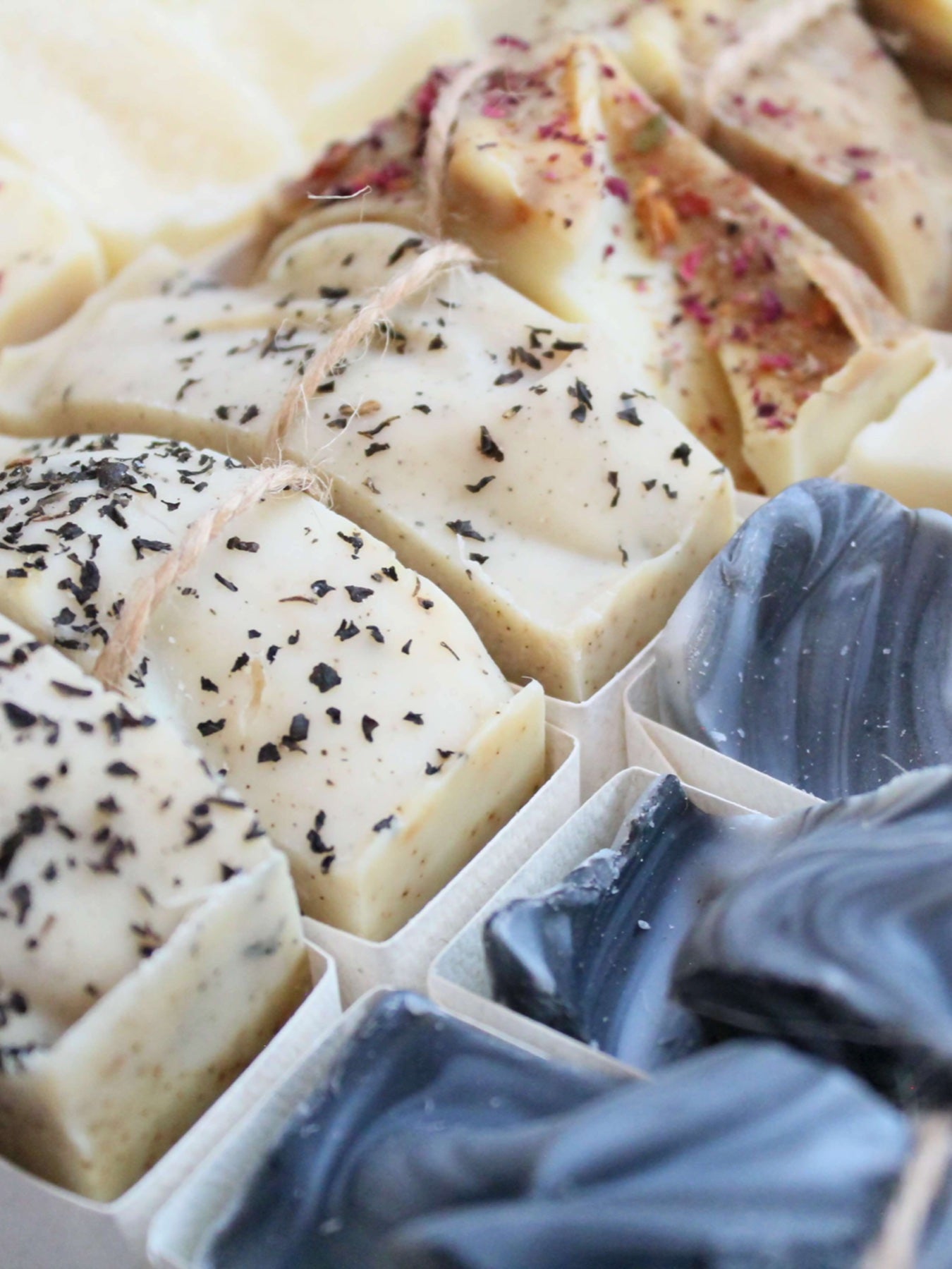 Addressing Allergies and Sensitivities: Even natural ingredients can cause reactions for some people. It's important to clearly label soaps that contain allergens like lavender or chamomile and to offer a variety of products to suit different skin types. Patch testing ingredients on a small skin area before full-scale use is also recommended.
Addressing Allergies and Sensitivities: Even natural ingredients can cause reactions for some people. It's important to clearly label soaps that contain allergens like lavender or chamomile and to offer a variety of products to suit different skin types. Patch testing ingredients on a small skin area before full-scale use is also recommended.
Creating Castile soap scented with natural herbs and flowers is an art that combines the crafts of herbalism and soap making. The use of natural botanicals not only imparts wonderful fragrances and therapeutic properties but also connects us to the timeless traditions of natural health and wellness. Whether you're a novice or an experienced soap maker, incorporating these natural elements can transform your soap into a holistic experience, nurturing the body and soothing the mind.

